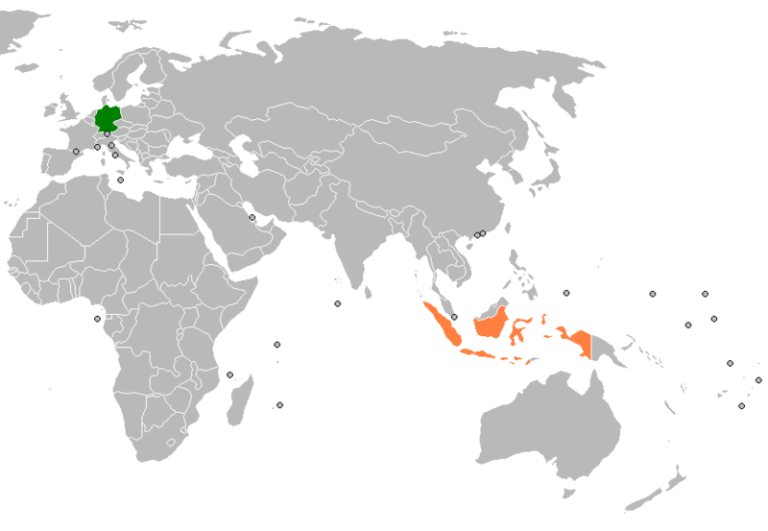CCorruption is like a cancer eating away at Indonesia. This haram practice is impeding the country’s progress, hindering development and exacerbating social inequality. Efforts to eradicate corruption are Corruption continuesHowever, it seems that this is still not enough. Indonesia needs to learn from other countries and gain knowledge. One of them is Germany.
Germany is one of the cleanest countries in the world when it comes to corruption. Various studies carried out so far have confirmed this claim, one of which is by Transparency International (TI). TI is a non-governmental organization that operates worldwide and whose mission is to fight the injustices caused by corruption. One of the annual report surveys that they publish is called the Corruption Perceptions Index (CPI).
based on 2023 GPAGermany ranked 9th with a score of 78 (out of 100). This result shows that Germany has been able to build an effective system to prevent and combat corruption. Therefore, it is fair to say that Indonesia can and should learn from Germany.
Indonesia’s Corruption Perceptions Index is poor
Meanwhile, Indonesia is still lagging far behind in terms of eradicating corruption. In the 2023 GPA, Indonesia only scored 34 points, ranking 115th out of 180 countries. This score indicates that Indonesia’s corruption level remains high. Comparing the results of the German and Indonesian CPIs, we can see that Indonesia still has a lot to do to eradicate corruption.
A stark comparison of the CPI results between Germany and Indonesia highlights the huge gap in the efforts to eradicate corruption in the two countries. In Indonesia, corruption is not only an obstacle to the country’s development, it also exacerbates social inequalities that negatively impact the entire society. The failure to address corruption harms the entire country, hinders economic growth and discourages domestic and foreign investment.
Indonesia’s low CPI is due to a variety of factors, including weak law enforcement and low levels of accountability for corrupt perpetrators at various levels of government, as well as a lack of transparency in public decision-making processes and a monitoring system that is open to abuse.
Indonesia and Germany’s efforts to eradicate corruption
Indonesia-Germany cooperation in the field of anti-corruption has been going on for many years. Both countries have a strong commitment to preventing and combating corruption. In fact, 2020The Corruption Eradication Commission (KPK) received a visit from the German Embassy in Indonesia. The meeting was held to further strengthen cooperation in the fight against corruption.
Corruption is considered a criminal offense in Indonesia and can be punishable by life imprisonment or heavy fines. Law No. 31 of 1999 on Combating Corruption Crimes (UU Anti-Corruption). Indonesia continues to make efforts to fight corruption through various initiatives, including raising public awareness. Corruption not only damages public finances, but also impedes government programs and national development.
On the other hand, according to the literature I have read, Germany has several strict anti-corruption laws that prohibit bribery in various contexts, including in the commerce, public service and health sectors. Anti-bribery measures are also strengthened abroad, and companies and their representatives can be prosecuted for corruption offences. Penalties for bribery can include large fines and even imprisonment.
Investigators are also focused on tax evasion related to bribery payments and often conduct money laundering investigations in such cases. Facilitating payments to public officials is prohibited, and entertainment may be considered a bribery depending on the circumstances of the case.
Although Indonesia and Germany have the same goal of eradicating corruption, their approaches are different because corruption is considered a serious crime that threatens the civilized order. Therefore, concrete steps need to be taken to mutually benefit both countries in eradicating corruption cases.
Concrete steps need to be taken by the Indonesian government
The Indonesian government cannot remain silent. It may seem impossible, but concrete steps are really needed from the government to create a corruption-free Indonesia. In this effort, Indonesia-Germany cooperation in eradicating corruption needs to be strengthened. The Indonesian government can study and adopt the best measures. Practice We received cooperation from Germany in building a strong anti-corruption legal framework.
This cooperation should not be limited to information exchanges and diplomatic visits, but should also include the exchange of knowledge, experience and best practices to eradicate corruption. Indonesia could learn from Germany, although Germany is not perfect, about building an effective system to prevent and combat corruption.
Besides, the Indonesian government needs to strengthen law enforcement and accountability against perpetrators of corruption, impose stricter and more effective sanctions on perpetrators of corruption without discrimination, increase transparency in public decision-making processes, and strengthen oversight systems to prevent abuse of power.
Indonesian investigators also need to pay close attention to tax evasion, a common feature of corruption cases, and step up investigations into suspected money laundering crimes to comprehensively eradicate corruption.
Following Germany’s example and learning from its experience provides Indonesia with an opportunity to tackle corruption more effectively, but creating real change and building a corruption-free country will require strong commitment and hard work from all stakeholders, both in government and society.
Therefore, eradicating corruption requires not only a task but also the participation of all stakeholders. Corruption Eradication CommissionIt is also the responsibility of individuals, families, education, society, the private sector and government institutions. Germany also has a strategy to prevent and fight corruption by banning the acceptance of bribes and gifts and by strengthening its anti-corruption political system.
[Image credit: NordNordWest, via Wikimedia Commons]
The views and opinions expressed in this article are those of the author.
Raihan Muhammad is a student of Law and Social and Political Sciences in Indonesia and a freelance writer writing about politics, law and fundamental human rights issues.


